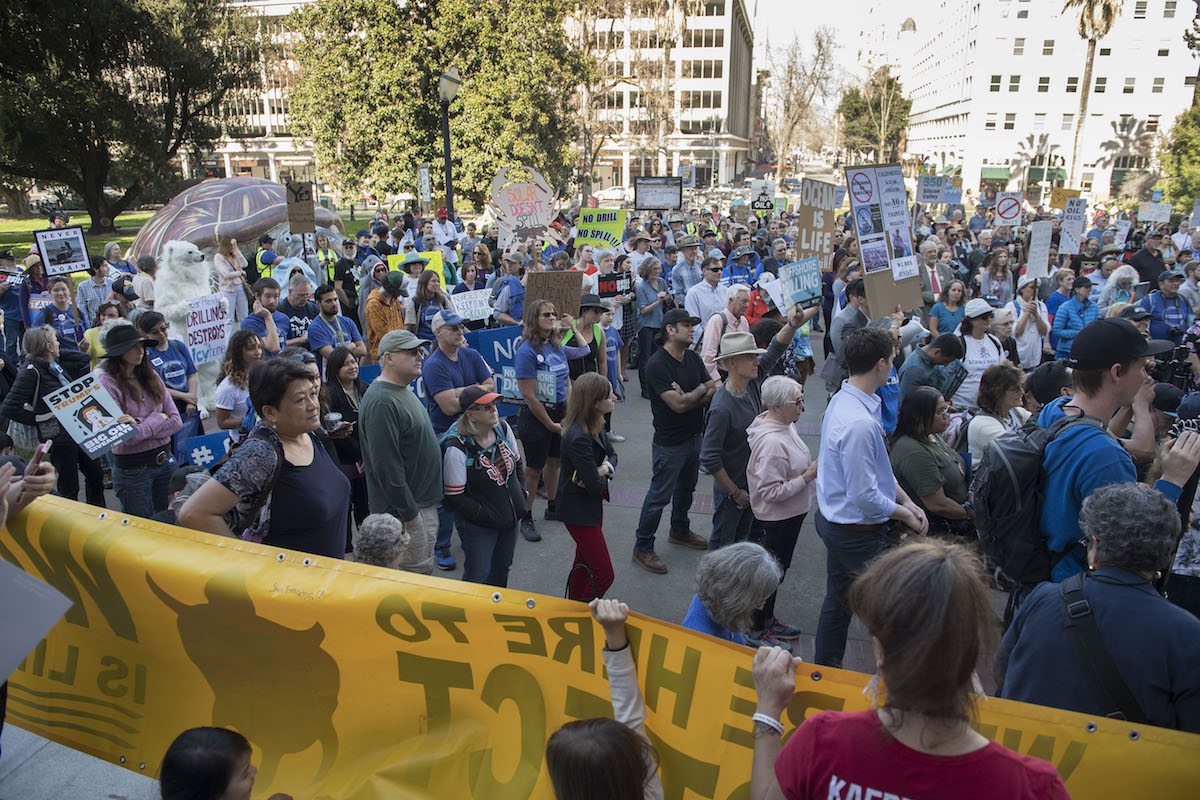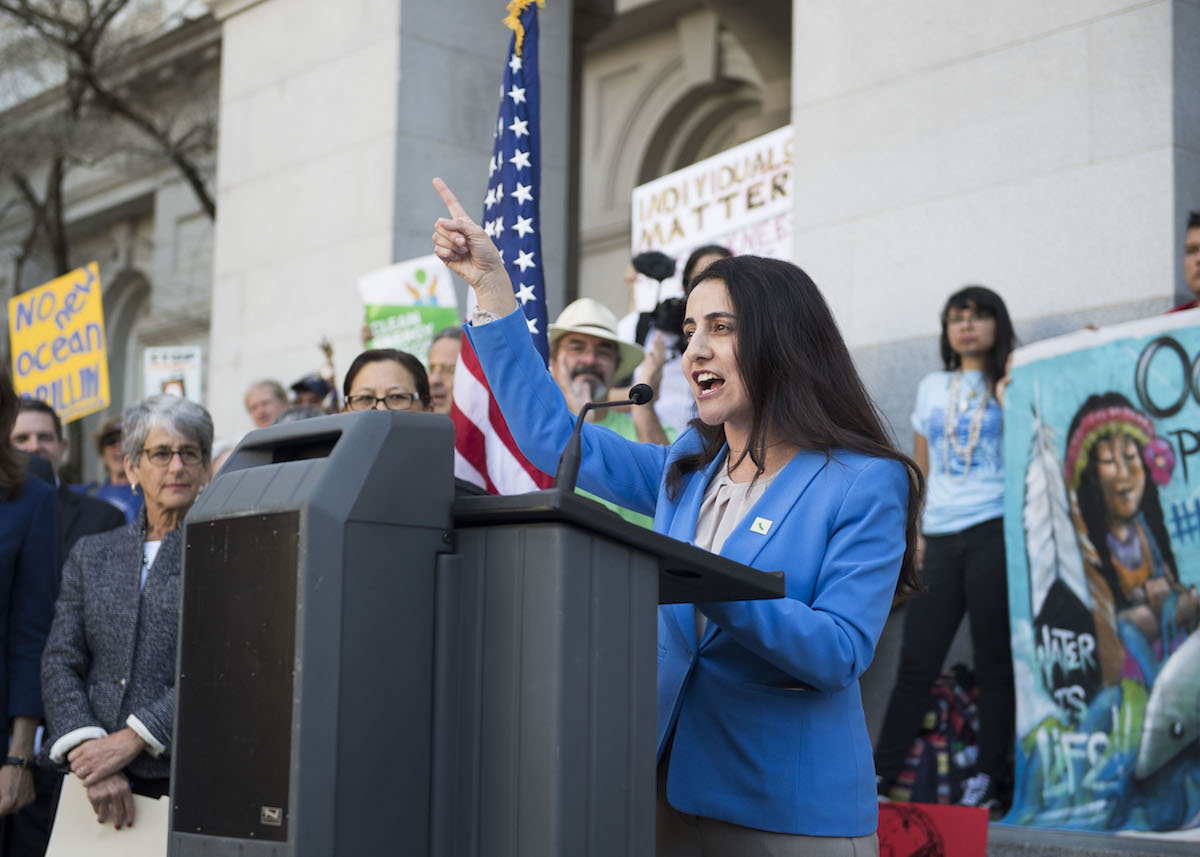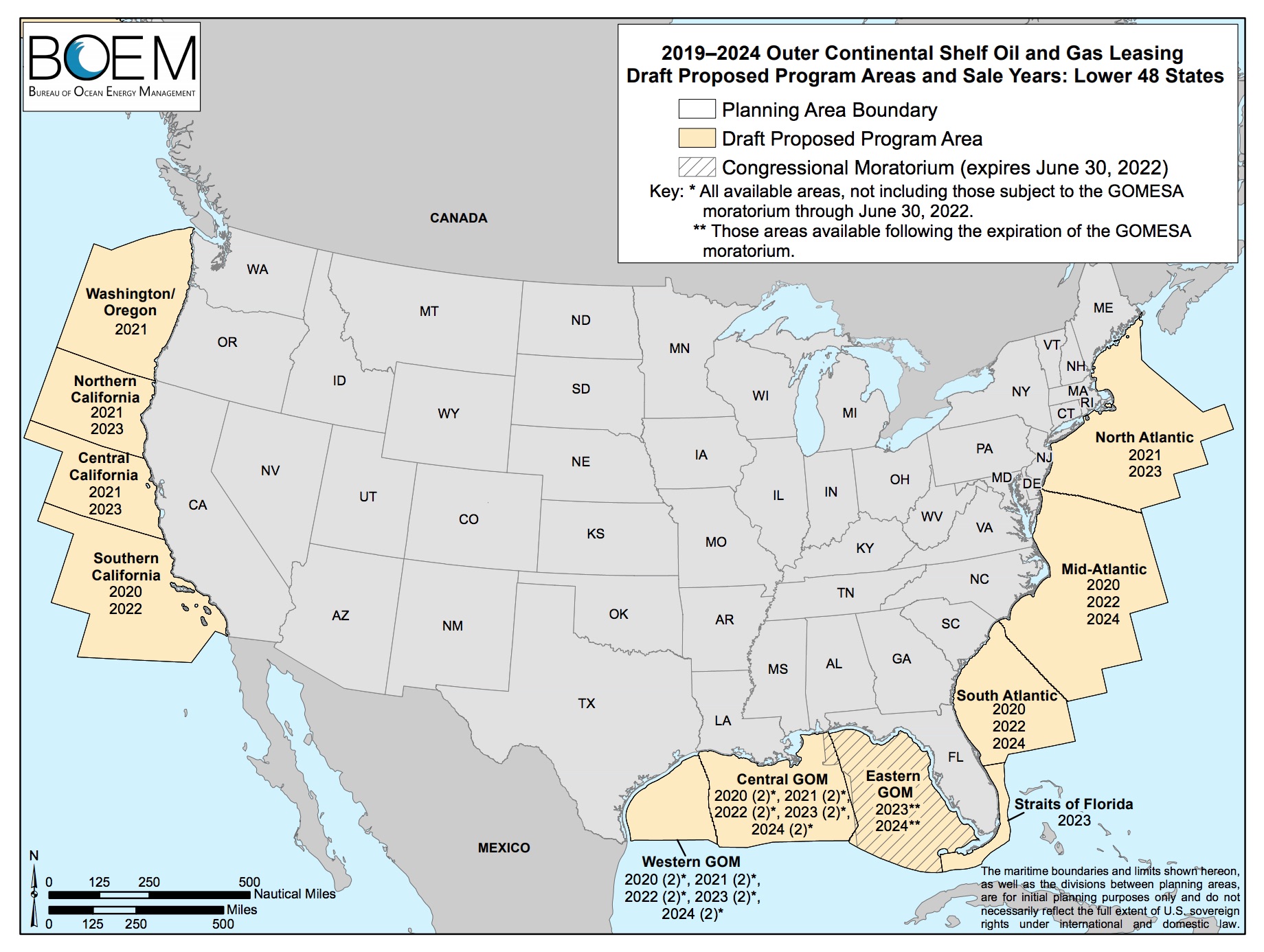Santa Barbara to Rally Against Offshore Oil

An invisible line three miles out to sea marks the border between state and federal waters, and it’s the seabed beyond the three-mile mark that Interior Secretary Ryan Zinke has in his sights for new oil lease sales, part of the “America-First Offshore Energy Strategy” signed by President Trump in 2017. The waters off Southern California are number 3 in the resulting lease program announced January 4, with a 2020 start date. Numbers 1 and 2 are the Beaufort (2019) and Chukchi (2020) seas north of Alaska. Zinke’s Draft Proposed Program includes all U.S. coastal areas except Hawaii, Alaska’s North Aleutian Basin, and Florida’s western coast; the latter is under a congressional moratorium that expires in 2022.
California is prepared to fight the program, known as the Outer Continental Shelf Oil and Gas Leasing proposal, including Santa Barbara’s Environmental Defense Center, Sierra Club, and Get Oil Out! An array of public officials and state agencies have written laws, passed resolutions, sent letters, and vowed to fight in court to maintain the protections given the California coast by a federal moratorium most recently renewed by President Obama in 2016. In Santa Barbara, a “how to protest” meeting takes place Tuesday evening.
Both the State Lands and California Coastal commissions have written objection letters based on environmental concerns and non-oil economic damage, according to the Sacramento Bee. More than 48,000 comments have been received at BOEM’s website, federal sources said.

With Ricardo Lara of Bell Gardens, State Senator Hannah-Beth Jackson has sponsored a bill — SB 834 — that bars any “new or additional” oil or natural gas facilities on state lands or waters. Jackson said in a statement that in prohibiting the State Lands Commission from approving new pipelines or other oil infrastructure: “[W]e are tackling climate change, not denying it, and I will continue to move forward with my Senate Bill 834 to ensure that pipelines and other infrastructure cannot be built in California waters to enable the dirty, destructive and dangerous energy policies of our federal Administration.” The bill is currently in committee.
Assemblymember Monique Limón coauthored a similar bill, AB 1775, and she also offered Joint Resolution 29 — along with assemblymembers representing California’s three lease zones — which states that renewed drilling “could lead to more oil spills, increased dependence on fossil fuels, and significant negative impacts on the state’s economy.” It adds that California’s coastal economy was three times more productive than Florida’s — California’s employed 15.8 million people in 2014 and generated about $1.2 trillion — though western Florida waters were removed from the offshore lease proposal for its “potential negative impacts on tourism.” According to D.C. publication The Hill in 2017, the area 125 miles off Florida’s western coast has been formally off-limits to oil since 2006 because of extensive military training operations in the Gulf of Mexico, as well; Trump’s Mar-a-Lago is on Florida’s eastern coast. The Joint Resolution heads next for the Senate as it passed the Assembly with bipartisan support on February 8.
That’s the same day Interior’s Bureau of Ocean Energy Management held in Sacramento California’s sole public meeting on the proposed lease sales, an event many described as akin to a science fair with federal officials lined up to offer information rather than hear comments being aired publicly. Those voices were heard beforehand on the steps of the Capitol, Limón’s office explained, in a rally attended by several hundred people — plus 20-foot inflatable whales and sea turtles — loudly protesting the prospect of offshore oil in federal waters.

The protest comes to Santa Barbara on Tuesday evening, when elected officials and environmental groups gather at the downtown library’s Faulkner Gallery to give information on the project and what the public can do. The meeting, sponsored by nonprofits Environmental Defense Center, Sierra Club, and Get Oil Out!, is February 13, 6 p.m., 40 East Anapamu Street.



